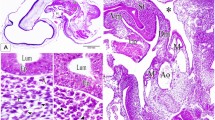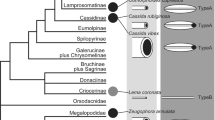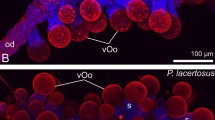Abstract
THE female of Trichosurus vulpecula, the common Australian phalanger or possum, has a well-developed pouch, while the male possesses in the corresponding region a large pendulous scrotum. On injecting large doses of cestrogen into males of varying ages there appeared at the sides of the scrotum skin folds which strongly suggested the formation of a rudimentary pouch, particularly in immature animals1.
This is a preview of subscription content, access via your institution
Access options
Subscribe to this journal
Receive 51 print issues and online access
$199.00 per year
only $3.90 per issue
Buy this article
- Purchase on Springer Link
- Instant access to full article PDF
Prices may be subject to local taxes which are calculated during checkout
Similar content being viewed by others
References
Bolliger, A., and Carrodus, A., Australian and New Zealand J. Surgery, 9, 155 (1939).
Bolliger, A., and Carrodus, A., J. Roy. Soc, N.S.W., 73, 218 (1940).
Burns, R., J. Morph., 65, 79 (1939).
Author information
Authors and Affiliations
Rights and permissions
About this article
Cite this article
BOLLIGER, A. Experimental Production of a Pouch in the Male of Trichosurus vulpecula. Nature 150, 688–689 (1942). https://doi.org/10.1038/150688b0
Issue Date:
DOI: https://doi.org/10.1038/150688b0
Comments
By submitting a comment you agree to abide by our Terms and Community Guidelines. If you find something abusive or that does not comply with our terms or guidelines please flag it as inappropriate.



